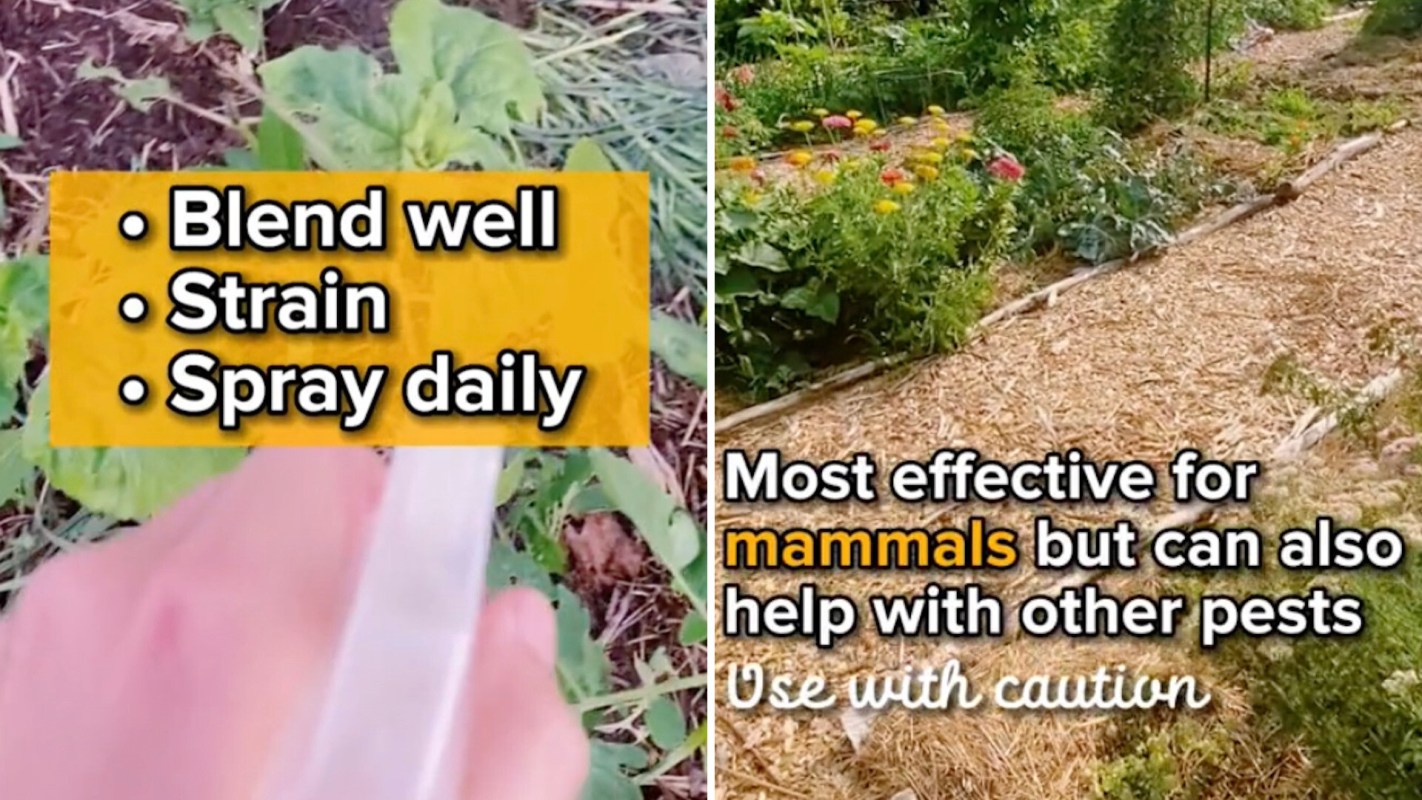One farmer shared an all-natural way to keep your garden from becoming a casualty of groundhogs' appetites.
How it works
In a clip with more than 400 likes, TikToker Sunshine Farm (@sunshinefarmny) described how one of humans' favorite seasonings isn't quite so beloved by the furry pest when combined with cayenne pepper and water.
All you need is three cloves of garlic, one tablespoon of cayenne, and two cups of water. After blending and straining the mixture, use it to spray daily.
"It helped tremendously with the groundhog problem. Use minimally, only where needed, and avoid flowers or host plants for pollinators," the OP wrote, adding that the DIY spray is also highly effective at keeping away other mammals.
@sunshinefarmny Try this for all-natural pest control. It helped trwmendously with the groundhog problem. Use minimally, only where absolutely needed, and avoid flowers or host plants for pollinators. #diy #organicgardening #pestcontrol #gardentips #gardeningtips #gardenhack #foryoupage #fyp #foryou #notill #permaculture #notillgardening #gardentok ♬ Summer day - TimTaj
How it's helping
The widely available, affordable seasonings are most likely already in your kitchen, saving you from running to the store for a specialty solution, spending money on fencing, or dealing with toxic and inconvenient fumigation.
Groundhogs can destroy your garden by burrowing, like moles, and can even create pricey damage to electrical wires or building foundations — causing a safety hazard for both themselves and humans.
Though soybeans, lettuce, broccoli, clover, beans, peas, and alfalfa are some of the critters' preferred treats, groundhogs will devour "pretty much any vegetation," as detailed by Forbes, eating approximately one-third of their body weight daily.
While we certainly wouldn't want to deny the hungry rodents their nutritional needs, it's important to remember that they have a wide range of foods to consume, including insects, snails, and bark.
Other creatures, meanwhile, are more dependent on some of the vegetation and flowers in gardens destroyed by groundhogs, including pollinators like bees and butterflies.
According to the UN Food and Agriculture Organization, nearly 75% of food consumed by humans is dependent on pollinators, which have been in decline partially because of harmful chemicals in pesticides and fumigants.
Even if pesticides or fumigants aren't sprayed directly on flowers, they can ultimately enter pollinators' stomachs, including through wind dispersal and soil contamination, making this hack to keep pests away without chemicals a winning formula for your toolshed.
What people are saying
Other TikTokers were intrigued, peppering the OP with additional questions.
"Does it work for rabbits?" one person asked.
"They won't eat it if it's spicy because their digestive tracts can't handle it," Sunshine Farm responded. "So they won't get hurt either."
"Does it work for freakin cats?!" another user questioned, with the OP chiming in to confirm, "Only if they're eating your plants."
Join our free newsletter for easy tips to save more, waste less, and help yourself while helping the planet.









